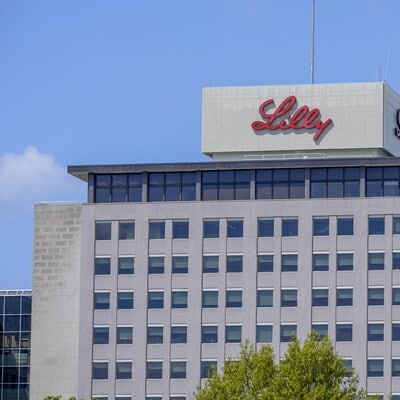Eli Lilly wants records of people who took copies of its weight-loss drug | World News

)
In June, the company ran a full-page ad in several national publications taking aim at the booming market. Image: Bloomberg
Eli Lilly & Co. is asking people who took copies of its blockbuster weight loss drug to give the company access to their medical records for safety reasons, a move that comes as it builds a case against businesses selling the compounded drugs.
Compounding pharmacies have used a legal provision that allows them to make knockoff versions of Lilly’s Zepbound and Mounjaro while they are in a shortage. While Lilly has raised questions about the quality of those products, and some state inspections have found worrisome practices, the pharmacies say they are following the law and helping Americans get medicines they need.
“We recently learned that you took one of our products from a compounded pharmacy,” Lilly wrote in a letter viewed by Bloomberg News. “We would appreciate if you could complete the enclosed form and sign the Authorisation for Release of Medical Information so that we can obtain more details from the treating physician around your experience.”
A spokesperson for Lilly confirmed the authenticity of the letter, saying it’s part of the company’s ongoing efforts to monitor and evaluate the safety of its medicines. It sometimes contacts people who have previously been in touch with the company, a spokesperson said, without providing additional details.
Lilly and rival Novo Nordisk A/S, whose drugs are also in short supply, have taken a number of actions against medical spas, doctors and compounding pharmacies that sell or promote copycat versions of their products. Many pharmacies and telehealth companies continue to offer the medicines, relying on the federal law that allows compounding of such drugs when they’re in short supply.
Shocked
“I am gobsmacked that Lilly is seeking confidential patient medical records to build a case against the very therapies that are benefiting those patients at a time when Lilly’s own drugs are not available to those patients,” said Scott Brunner, chief executive officer of the Alliance for Pharmacy Compounding, an industry trade group.
The letter is the latest sign that the battle between the brand-name drug manufacturers and the companies that make and sell the compounded versions has intensified. Compounded weight-loss drugs could be bringing in as much as $1 billion for pharmacies, bankers have said.
Lilly Chief Executive Officer Dave Ricks isn’t backing away from the fight.
The Food and Drug Administration has listed an ongoing shortage of Lilly’s medicines since December 2022. Recently, supply of the drugs has been getting better. Ricks says he expects them to officially come out of shortage very soon, and thinks the FDA should be doing more to stop the proliferation of compounded therapies in the meantime.
Advertising Wars
Lilly is reaching out in a variety of ways. In June, the company ran a full-page ad in several national publications taking aim at the booming market: “We are making obesity medications. But want to ensure you are taking the real product,” the ad said.
Earlier this week, telehealth company Noom Inc. responded with its own advert “challenging recent comments from Lilly regarding compounded medications,” a spokesperson said.
Compounding pharmacies have said that they make high-quality drugs using real ingredients from legitimate suppliers, and that they play an important role providing medicines when the FDA-approved versions are in short supply.
First Published: Sep 20 2024 | 9:10 AM IST




